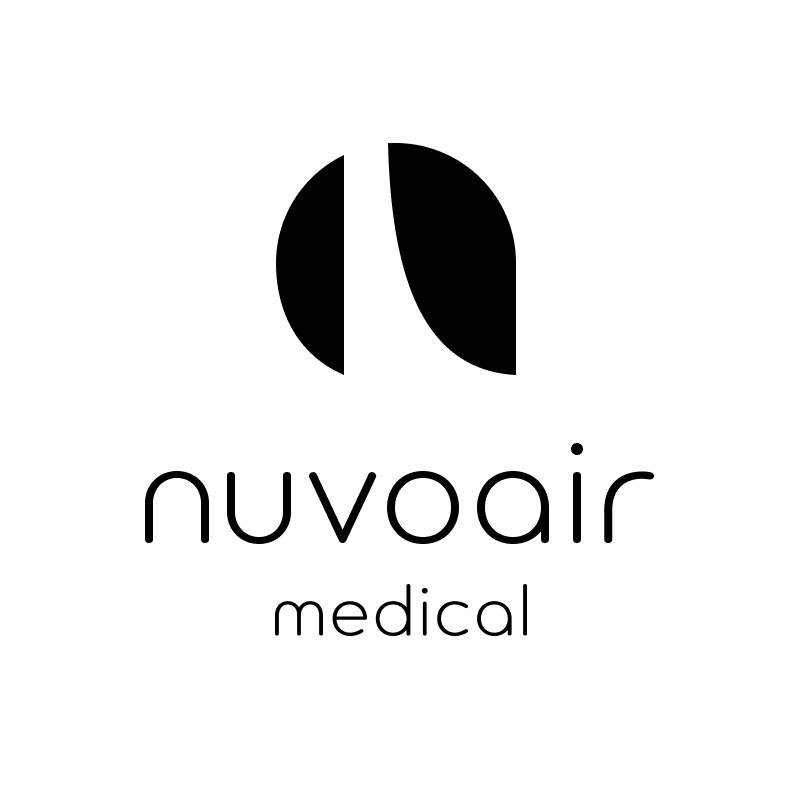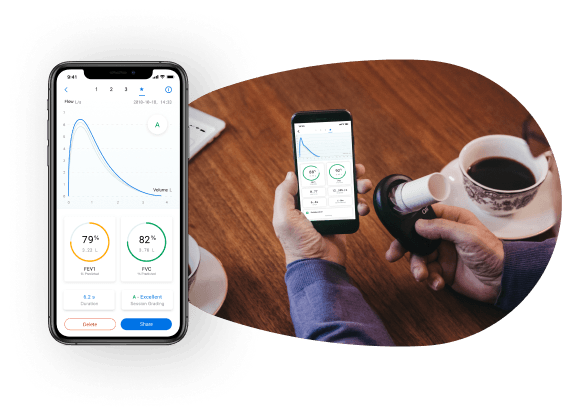AI in Healthcare: The Silent Revolution Reshaping NuvoAir

AI is not a choice anymore; it’s a necessity. Every industry is getting disrupted, and those who fail to adapt will go the way of Blockbuster or Kodak. In the 90s and early 2000s, companies had to digitize their businesses to survive as the internet became mainstream. This AI transformation is even more profound. It’s not just a shift in how businesses operate, it’s a redefinition of what they are.
For this reason investors are pouring billions into AI startups across every sector, riding the wave of this grandiose revolution. Funding to AI-related companies reached over $100 billion, up more than 80% year over year from $55.6 billion in 2023, according to Crunchbase. But while they chase the latest AI unicorns, they’re overlooking a critical category, tech-enabled service organizations. At least in healthcare, investment has plummeted. The reasons are complex, but what many investors fail to grasp is that tech-enabled services will be among the biggest beneficiaries of AI. And I can say this with certainty given my role at NuvoAir.
The 70% Problem in Healthcare
 This is a well-known problem. In fact, similar to many other healthcare organizations, at NuvoAir, about 70% of our time is dedicated to managing the administrative burden of delivering care for patients. The remaining 30%? That’s focused on actually providing care. We are working hard to flip the ratio, but that’s the crude reality of why healthcare is a hard nut to crack.
This is a well-known problem. In fact, similar to many other healthcare organizations, at NuvoAir, about 70% of our time is dedicated to managing the administrative burden of delivering care for patients. The remaining 30%? That’s focused on actually providing care. We are working hard to flip the ratio, but that’s the crude reality of why healthcare is a hard nut to crack.
Let’s zoom in on that 70%. In healthcare, the patient journey is notoriously complex even before a patient sees a physician. Referrals need to be managed, data must be entered into multiple systems, visits are scheduled and rescheduled, insurance needs verifying , prior authorizations must be secured and the list goes on. And that’s all before the visit. Post-visit, the admin workload only increases, and I’ll spear the reader with an infinite long list. These tasks, while necessary, add minimal value to actual patient care.
By leveraging AI and automation, we’re streamlining and automating a staggering number of these activities. For example, we built a simple yet highly effective AI agent that runs on our voice mails, synthesizes the content through Large Language Models, and delivers insights to our Medical Assistant team prioritizing their workflow, and most importantly, alerting our triage unit to any urgent patient needs so nothing falls through the cracks. This simple agent is saving us over 50 hours of work every month. And we are just scratching the surface. Many more applications are currently in operation and more agents are coming to life. This isn’t just an incremental improvement, it’s transformative. Why?
Massive Gross Margin Impact – As we integrate AI into our clinical operations at NuvoAir, we see firsthand how it positively impacts our gross margins. We are talking about double digit improvements.
Happier Employees, Better Care – Reducing repetitive administrative tasks means our team can focus on what truly matters, patient care. No one entered healthcare to be a glorified data-entry clerk.
The 30% That Actually Delivers Care
 Now, let’s talk about the other 30% focused on patient care. This is where our clinicians deliver treatment, our care coordinators ensure our patients follow their care plans, and our nurses triage adverse events. It’s here that patient outcomes are more directly impacted.
Now, let’s talk about the other 30% focused on patient care. This is where our clinicians deliver treatment, our care coordinators ensure our patients follow their care plans, and our nurses triage adverse events. It’s here that patient outcomes are more directly impacted.
At NuvoAir, AI is enhancing, not replacing, this human touch. Patients want to be seen, touched, and reassured by people, not machines. But when it comes to deeply personalizing a patient’s journey, AI can do what it does best: process vast amounts of data and deliver actionable insights.
We pull in data from multiple sources (e.g., EMRs, claims, health information exchanges, proprietary biomarkers, and patient engagement data) to create a hyper-personalized care experience. This is where AI shines: analyzing, predicting, and optimizing care pathways in ways that humans alone simply can’t. We have already produced remarkable outcomes data, but now that AI is slowly but steadily penetrating our care delivery organization, I can only imagine how we can start scaling patient care and further enhancing outcomes. Our next AI agent will be compiling and updating care plans in real time in ways previously unattainable, significantly supporting the work of our clinical team.
Our Unique Position
The future of AI in healthcare isn’t just about who builds the smartest AI. As we have seen these models seem to get outdated or commoditized pretty quickly. I believe it is about who knows how to use it best. And that’s where NuvoAir is leading the charge.
Unlike generic AI solutions, we’re building AI agents specifically tailored to real-world healthcare needs. We’re not just adopting generic AI tools; we’re creating them from the inside out, making them inherently more relevant to organizations delivering hybrid care to highly complex patients.
More importantly, we are embedding them directly into our workflows. OpenAI and Anthropic may provide the models, but companies like Microsoft, Notion, and Figma win by embedding AI natively into their platforms. By directly embedding the tools into our workflows, our clinical teams can constantly improve them creating a powerful virtuous cycle.
Moreover, we have a unique set of data that makes the development of our agents much more relevant for our patient population. Over 20,000 sms exchanged between our patients and our clinical team and over 90,000 minutes of live conversations recorded over the past 12 months just to name a few. Combining all of those proprietary sources with clinical and claims data allows us to hyper personalize patient interventions, learning all the time what will drive the most engagement and best outcomes. Companies with exclusive, domain-specific, or proprietary data that enhance AI performance will be defensible.
Finally, we run on a new and modern tech stack.This isn’t a healthcare company bolting AI onto an outdated system. We’re designing AI-native solutions that fit seamlessly into clinical workflows, making adoption frictionless, and exponentially increasing the speed of innovation.
When I talk to investors, I notice they’re generally more fixated on AI tooling startups, not on the industries that will benefit the most from these tools. But here’s the kicker: tech-enabled healthcare services like NuvoAir Medical will soon operate with software-like gross margins, significantly improving patient outcomes all while tapping into a massive total addressable market.
Lorenzo Consoli
CEO and Founder
NuvoAir Medical


.jpg)


